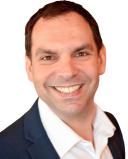Education
Is Being Human About Numbers or Words?
Personal Perspective: Should we prioritise data over stories?
Posted January 9, 2023 Reviewed by Gary Drevitch

On Wednesday, 4 January 2023, the U.K.’s Prime Minister, Rishi Sunak, made his first major speech of the year, proposing to reform education by putting a focus on maths being taught for all pupils up to the age of 18. He said that in a world driven by data and numbers, the country is letting its young people down by not focusing on maths.
While in principle this is a good initiative, it is only so for some, not all. I grew up in France, a country highly prizing maths and numeracy. I had to attend maths classes up to age 18 and sit a maths exam as part of the overall exam at the end of high school called Baccalaureat. I was never good at maths. No matter how much I tried, I never improved even with private tuitions. I don’t relate to numbers, and I don’t really understand them. If I was a pupil today, I would probably qualify for the diagnosis of dyscalculia, a difficulty in learning or comprehending arithmetic and numbers. Maths was the main focus of my French education, and as such, every year, my maths teachers would say that I was a failure, or that I was stupid and wouldn’t be good at anything in life. For me, maths classes were truly an endurance exercise that negatively impacted my mental health. If I had listened to my maths teachers—and everyone else who believed my maths teachers’ opinions—I would not have done much in life, indeed. But I didn’t listen. Instead, I focused on words and stories. I immersed myself in literature and I learned different languages. Today, I’m a psychotherapist, listening to people’s individual stories to help them make sense of their lives, and I’m an author who writes about mental health, sexual health, and being human.
Sunak is right: Our world is driven by data. But is it right to have such a world? Should we encourage our young people to live in a world governed by numbers? Isn’t it the pursuit of financial profit (numbers) that is making our world collapse under out-of-control capitalism? By focusing on data, we disable ourselves from listening to human stories, and we end up with governments and policymakers making decisions that have nothing to do with our lives, yet affecting us all. We can have data about the performance of the NHS, and based on that, people with power may decide how much a nurse’s salary is worth. But the data won’t capture their life stories, and those are the stories policymakers need to hear. The data won’t tell us that many nurses are living with post-trauma stress from working in the ICU during the worst of the COVID-19 pandemic. When they close their eyes at night, exhausted after a 12-hour shift during which they barely sat down for more than five minutes, memories of dying people come up. They remember the countless times they had to hold their dying patients’ phones so that they could say their final goodbyes to loved ones who could not be physically present to hold them. At night, they remember the sound of crying families, and the feeling and smell of masks held so tightly that it bruised their faces. They worked so hard, sometimes feeling helpless because they couldn’t save everyone, and yet they also kept so many of us alive, including Boris Johnson. They did all of that, and more, day in and day out, without complaining, and putting their own health at risk, making major compromises with their own families to help others. Since the worst of the pandemic, nurses, doctors, and other medical professionals haven’t had a break. They keep working tirelessly, and are now increasingly unable to pay their bills. The data will not capture any of that because if we want to truly understand them and their lives, we need to listen to their words. Focusing on numbers and not those human stories leads to inhuman decisions on the price of care, and how much a profession is worth investing in.
The same goes for my psychotherapy profession, one that is also dismissed with shockingly low salaries offered for counsellors and psychotherapists who spend an enormous amount of money on their trainings and working for free in clinical placements for several years before gaining their qualifications and accreditations. Mental health professionals are telling the government that so many people are struggling emotionally, that we are in a mental health crisis, and yet, the government regularly places mental health services at the bottom of its priority list with wildly inadequate investments. Again, data will not capture people’s suffering. We might have a scale of distress, and if a patient scores a lower distress number on their scale after their allocated six sessions available on the NHS, it may look like all is fine, but the number on the scale won’t show what is the meaning of the reduced distress for individual people. Our mental health is complex and cannot be quantified in one number. For example, feeling less distress about a traumatic event sometimes mean that we have more emotional availability for grieving, or it might mean that we have now some space to think about the difficult relationship we have with our romantic partner. If we want to provide proper mental health care, we need to listen to people’s stories and the meaning they’re making of their own lives. It is widely accepted in psychotherapy that the healing agent is the therapeutic relationship, which means the connection between humans—not techniques, not numbers, but connections—and sharing our stories with another human being in a non-judgmental space.
I was appalled when I recently heard from a 15-year-old person in the U.K. that learning a language is not mandatory in their school. Of course, it is good for young people to learn maths. But we must also teach young people the importance of literature and languages. Literature is a window to the human soul. Learning a language comes with learning a new culture and different ways to think about life, fostering a diverse mindset. Stories and languages expand the mind in ways numbers can never do.
Words are powerful. Sharing stories is one of our most ancient ways of surviving, relating, comforting, and thriving. It's a major part of the psychotherapist’s craft in helping people feel better about themselves and their lives. Don’t get me wrong: Data is important too. Scientific research in psychology and evidence-based practices inform our work. We need that data. But, we don’t need to focus on it to the point of minimising the importance of words, stories, literature, and languages. Georgina Sturge, in her book Bad Data (2022), tells us that data and numbers aren’t facts; they are as flawed as the human beings collecting them. Mind you, we can also manipulate stories to make them compelling to control the public, as Robert Jay Lifton asserts in his book Losing Reality (2019). The danger, though, is when we think that numbers are “truth” and stories are not, or when numbers are more important than words. What I see in my work is that the stories of people are central to our hearts and our souls. Stories make us feel alive. We can deeply resonate with words, with dialogues, with human connections. Words and stories are what we know in a visceral sense about our existence, who we are, our sense of belonging, and love. So, perhaps Prime Minister Sunak and other governmental leaders can be more balanced in their education reforms so that we don’t produce new generations worshipping numbers and ignoring the central parts of their humanity.
References
Sturge, G. (2022). Bad Data. How governments, politicians and the rest of us get misled by numbers. The Bridge Street Press. London.
Lifton, R.J. (2019). Losing Reality. On Cults, Cultism, and the Mindset of Political and Religious Zealotry. The New Press. New York.


